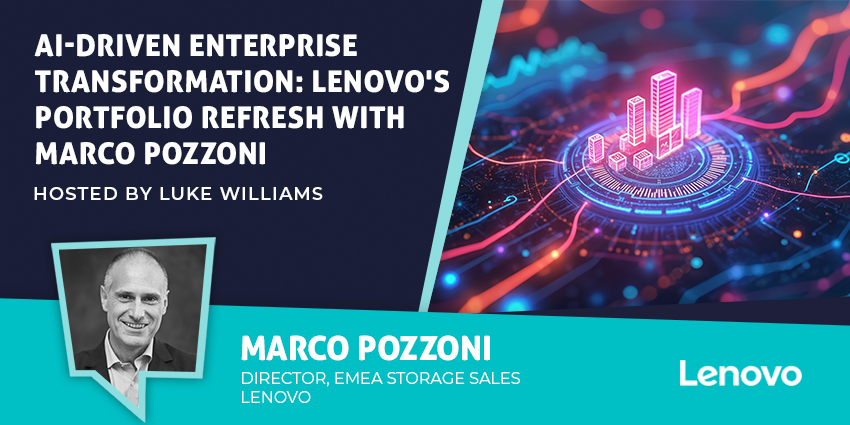Interested in the evolving link between AI agents and productivity in the workplace? You’re not alone. AI agents are emerging as the new frontier of enterprise artificial intelligence, empowering companies to automate, refine, and optimize countless crucial tasks.
AI agents don’t just analyze data or create content; they autonomously act, setting goals, planning roadmaps, and completing tasks, all without human input. Essentially, it’s like having a team of employees who never work, sleep, or complain about repetitive tasks.
- If you’re ready to embrace the agentic AI era, check out our top tips for integrating agentic AI into business operations. Alternatively, if you need help choosing the right AI agent tools, our guide to comparing AI agemt platforms will help you make the right decision for your use cases.
While AI agents can deliver a host of benefits to organizations, from enhanced creativity to improved data insights, its impact on productivity has the potential to be astronomical. Here’s why AI agents are the productivity powerhouse your business needs.
AI Agents and Productivity: Optimizing Team Performance
With supercharged reasoning and execution abilities, AI agent systems are set to transform how humans and machines collaborate. Even complex tasks, like dynamically reconfiguring supply chains or creating comprehensive marketing strategies, can now be enhanced like AI agents.
That’s why AI agents and productivity in the workplace go hand-in-hand. By automating more repetitive tasks for teams than ever before, AI agents give employees more time to focus on strategic, high-value, and creative work.
Here are three of the main ways AI agents transforms team productivity.
Next-Level Automation: Streamlining Business Processes
Traditional AI tools and even generative AI systems are great for handling specific tasks, one at a time, when they’re given clear instructions. However, these tools are inherently “reactive” and rely on human intervention at every step.
With AI agents, productivity soars because systems don’t just follow orders. They take the initiative, identifying inefficiencies, planning, recommending solutions, and executing actions autonomously. For instance, AI agents can automate multi-step processes like:
- Marketing Campaign Management: Agentic AI tools designed with platforms like Agentforce, from Salesforce, can manage entire marketing campaigns. They can monitor campaign performance in real time, dynamically adjust ad spending, optimize messaging based on audience engagement, and even assign tasks to team members.
- Healthcare Workflows: In hospitals, AI agents can analyze patient data, flag abnormalities, and adjust treatment plans based on new test results or evolving symptoms. These systems also ensure that clinicians receive actionable insights quickly, improving patient outcomes.
- Cybersecurity: Companies like CrowdStrike use AI agents to continuously monitor system activity for anomalies. These tools detect and mitigate threats such as phishing attacks or unauthorized access in real time, ensuring network integrity without human intervention.
- Supply Chain Optimisation: In manufacturing and retail, AI agents predict inventory needs, autonomously place orders with suppliers, and dynamically reconfigure schedules based on demand forecasts, supply delays, or geopolitical disruptions.
The next-level automation capabilities of AI agents for everything from reporting and data entry tasks to scheduling and customer service processes unlock incredible productivity. They help employees spend less time focusing on routine work and more time on tasks that matter.
Enhancing Agility and Decision-Making Processes
Companies have been using advanced artificial intelligence systems to help them process, understand, and use data more effectively for years. What makes AI agents a game changer is its ability to help organizations remain agile, ensuring they can constantly upgrade their scheduling strategy, resource allocation efforts, and more based on current data.
Unlike traditional AI tools trained on existing data sets, AI agents adapt and learn continuously, making them uniquely capable of tackling dynamic challenges. For those investing in agentic AI and productivity strategies, intelligent tools can help with:
- Resource Allocation: Agentic AI systems, such as those deployed in logistics, analyze production schedules, inventory levels, and delivery routes to optimize resource allocation. For example, an AI agent might shift delivery routes to avoid delays caused by traffic.
- Financial Forecasting: In finance, agentic AI tools analyze real-time market data, economic trends, and historical performance to generate accurate financial forecasts. This empowers decision-makers to react faster to market volatility.
- Product Development: AI agents can predict customer preferences by analyzing product reviews, social media feedback, and competitor offerings. This enables companies to develop products that align closely with market demands.
As an example, Accenture uses Agentforce-powered AI bots to help staff members plan their work weeks, adjust schedules, identify priorities, and make the most of their time in the office. Retail companies like Amazon use agentic AI to plan pricing adjustments, inventory shifts, and scheduling requirements. Ultimately, AI agents help companies make the most of their resources, upgrading productivity and efficiency while reducing operational costs.
Improving Employee Morale and Engagement
While some employees are still reluctant to embrace AI agents – believing it will make them obsolete in their roles – the truth is that AI agents can significantly enhance employee experiences. Agentic AI tools don’t just automate tasks for employees, meaning they can focus less on mundane projects.
The right solutions can help staff members optimize their schedules and work more efficiently. Some business leaders, like Eric Yuan of Zoom, even think AI tools could enable more companies to embrace the age of the four-day workweek.
By focusing on AI agents and productivity, companies can improve employee morale, engagement, and satisfaction with:
- Constant task support: AI agent tools can take over low-value tasks on behalf of employees, like managing email inboxes and scheduling meetings – so they can focus on what they do best – handling creative, strategic, and fun projects.
- Ongoing training and development: AI-powered platforms like Watson Orchestrate personalize training programs for employees, suggesting courses, webinars, or certifications tailored to their skills and career goals.
- Optimizing experiences: AI agent solutions can make it easier for employees to manage shift changes, request time off, access insights into benefits, and so much more. These tools can help each staff member make the most of their role.
AI agents can even support organizations with recruitment and onboarding. As an example, the Adecco group uses agentic AI tools to scan through resumes, manage end-to-end screening processes, maintain constant communications with candidates, and more.
AI Agents and Productivity: Real-World Examples
Embracing agentic AI isn’t just about finding new ways to automate a wider range of business tasks. AI agents can significantly improve employee engagement and experiences, enhance resource allocation and optimization, and foster growth among teams.
Worldwide, companies are already beginning to see the connection between AI agents and productivity improvements. For instance, the Raddison Hotel Group uses agentic AI solutions built with Google Gemini to support marketing groups. They say the technology has increased productivity by 50%, and the revenue they get from AI-powered campaigns has increased by 20%.
Wiley, a publisher and research leader, uses AI agent tools created with Agentforce to deliver enhanced self-service experiences to customers. This ensures employees can spend more time on valuable, creative tasks. According to the firm, AI Agents have improved the results of their self-service solutions by 40%.
Some companies are even using AI agents to enhance product development workflows. For instance, the “ChemCrow” agent designed for a chemistry team has helped the organization to plan, synthesize, and develop new insect-repellent products faster than ever before.
The Future of AI Agents and Productivity
Agentic AI isn’t a fleeting trend – it’s a transformative force that will reshape the future of work in every industry. In fact, Gartner predicts that around 15% of work decisions will be made autonomously by agentic bots going forward.
Diving into the world of AI agents now gives companies an incredible opportunity to scale performance, enhance efficiency, and optimize teams across departments.








